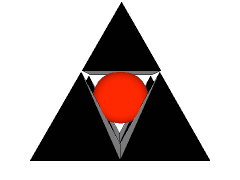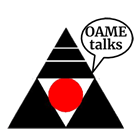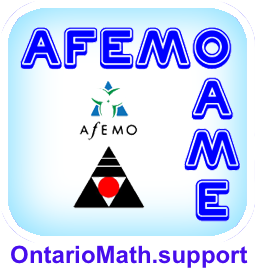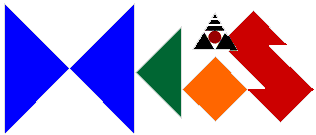President's Message - April 2017
Spring Into Something Completely Different

JUDY MENDAGLIO
judy.mendaglio@oame.on.ca
As I am writing this, the holidays are over and the United States has a new President. Though it has been unnaturally warm, it has also been very grey. I am anxious to get to the other side of winter's darkness. However, I know that by the time you read this, the days will be longer, the sun stronger, and spring will be upon us. Soon it will be time for us to meet again, at OAME 2017, hosted by the QSLMA chapter of OAME. I am hoping that they will have allowed the Ministry of Silly Walks to recruit conference organizers to demonstrate Silly Walks through the corridors of St. Lawrence College.
If you were wondering what I have been reading recently, I have returned to reading fiction. I am just finishing Margaret Atwood's Hag-Seed. This novel is about a man, Felix, who has had a successful career as director of a theatre festival. There is a line in this book that has stuck with me since I read it. For me, it resonates as being fundamentally applicable to teaching. Felix thinks to himself, "The play's the thing. His job is to help the actors help him execute it." In a classroom, the learning is the thing. How can we help our students help us teach them? If you have suggestions, we'd love to hear from you.
Before the holidays, I borrowed an interesting book with a very intriguing title, Why Don't Students Like School?: A Cognitive Scientist Answers Questions About How the Mind Works and What It Means for the Classroom, by Daniel T. Willingham. Daniel Willingham is a cognitive psychologist at the University of Virginia. This book was written in 2010, but the content seems very current. Although the context of the book is not specifically about teaching and learning mathematics, there was much that would be relevant to teachers of mathematics. Those of you who know about the work of Carol Dweck, Jo Boaler, and others, will be happy to see Willingham offer the following advice to teachers: "You want to encourage your students to think of their intelligence as under their control, and especially that they can develop their intelligence through hard work. Therefore, you should praise processes rather than ability." We still see too many students who believe that, if they are not "math people," there is nothing to be gained by working hard. Yet, I know many math people who became math people through hard work and perseverance. We need to continue to share these important messages with our students, as well as with their parents, guardians, and caregivers.
By the way, while carrying around this book, which I borrowed from the Ontario College of Teachers' (OCT) Margaret Wilson Library, it became apparent that many teachers are unaware of the OCT library and its holdings. Did you know, for example, that you can order a book to be sent directly to your home or school, free of charge? Did you know that they have e-books and DVDs? Were you aware of the large number of research publications that you can access through your OCT membership? We know that OAME members value their own learning, as well as the learning of their students. If you read anything that you would like to share with your OAME colleagues, consider submitting an article for publication to the Gazette or Abacus. We continue to be very proud of our award-winning publications.
See you in Kingston!
Previous Message:
Growth Mindset At Leadership 2016
Next Message:
The OMO Factor


















 Like us on FaceBook
Like us on FaceBook